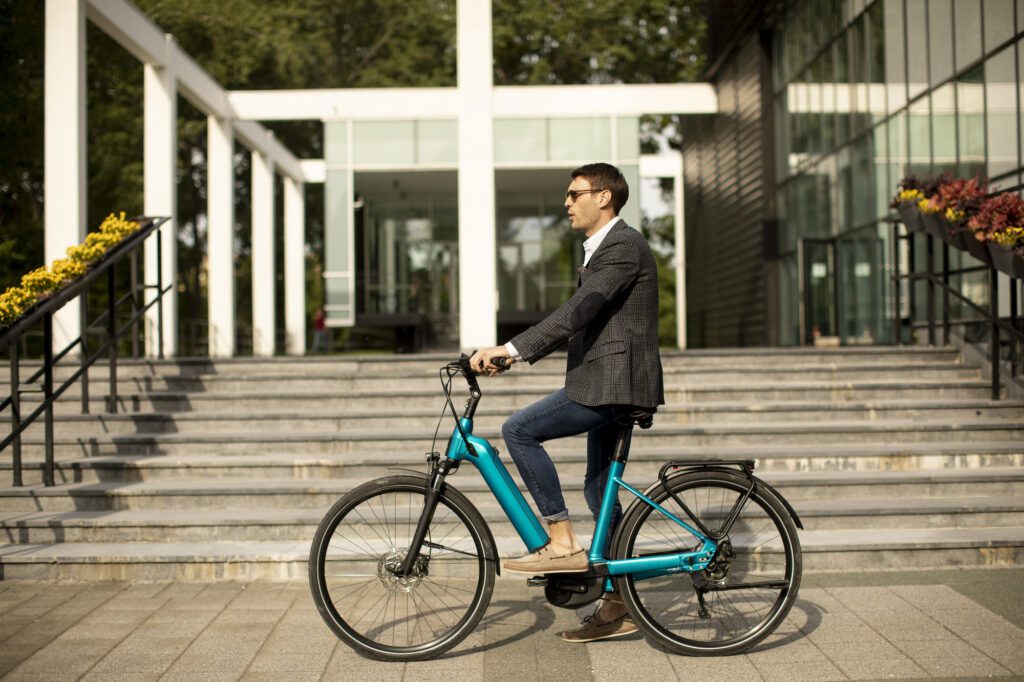Silent Heroes: Bicycles and the Environment
How does biking contribute to a healthier planet?
Bicycling has long been recognized as an environmentally friendly mode of transportation. With the increasing concern over climate change and the need to reduce carbon footprints, biking is gaining even more attention for its numerous benefits in protecting the environment. This article explores the various ways in which biking can significantly contribute to reducing carbon footprints and creating a brighter future for our planet.
Noise Pollution: A Silent Benefit
One of the often-overlooked advantages of biking over driving is the reduction in noise pollution. While cars emit loud noises that disrupt ecosystems and have detrimental effects on human health, bicycles operate quietly, causing minimal disturbance. By replacing noisy vehicles with quiet bikes, we can create a more peaceful environment that supports both ecosystems and human well-being.
Pollution-Free Commuting
Cars are notorious for their contribution to air pollution through harmful emissions released into the atmosphere. In contrast, bicycles do not rely on gasoline and do not emit any pollutants during operation. By choosing to travel by bike instead of by car, individuals can help keep our air clean and free from harmful substances.
A Brighter Future Through Reduced Emissions
The global increase in greenhouse gas concentrations has led to severe consequences such as climate change, wildfires, droughts, and other extreme events. These pose risks not only at present but also for future generations. One major contributor to these rising concentrations is excessive warming caused by unsustainable levels of emissions.
Cycling proves itself as a powerful solution in combatting this issue. Biking produces among the lowest carbon emissions per kilometer when compared to other modes of transport such as walking or driving. By choosing two wheels over four when commuting or running errands, individuals can actively reduce their carbon footprint and contribute to a brighter future.
Noise Reduction: A Healthier Environment
Noise pollution from vehicle traffic does more than just disrupt peace; it also has profound implications for human health and well-being. The incessant clamor generated by cars can lead to various health problems, including stress, sleep disturbances, and even cardiovascular issues. By replacing cars with bicycles, we not only reduce noise pollution but also create a healthier environment that promotes overall well-being.
The Domino Effect: Less Congestion
Traffic congestion is a common sight in urban areas, leading to increased travel times and frustration for commuters. However, the more people choose to bike instead of drive, the less congested our roads become. This reduction in traffic congestion has numerous benefits beyond just saving time – it also helps decrease fuel consumption and emissions from idling vehicles. By embracing biking as a means of transportation, we can alleviate traffic congestion and contribute to a more sustainable future.
Cycling’s Carbon Cost
To truly understand the environmental impact of cycling compared to other forms of transport, it is crucial to assess its carbon cost. This involves considering the emissions associated with bicycle manufacturing as well as the additional food/calories required for cycling.
While there is indeed a carbon cost involved in producing bicycles and the food needed to power them, studies have shown that cycling remains one of the lowest carbon-per-kilometer modes of transport – even surpassing walking in this regard. Thus, when considering reducing carbon footprints while commuting or traveling short distances, biking emerges as an environmentally friendly choice.
Manufacturing Emissions: The Whole Picture
It is essential to recognize that manufacturing emissions vary depending on various factors such as materials used in bicycle production. For instance, high-end aluminum frames undergo heat treatment processes that significantly increase energy demand and carbon footprint during manufacturing.
However, it is worth noting that these studies may have inaccuracies and limitations. Different types of bikes will have different manufacturing emissions due to varying materials used. And then, researchers argue that the emissions resulting from bike disposal or recycling are negligible compared to their overall lifetime impact.
Food Production Emissions: The Hidden Contributor
While biking itself produces minimal emissions, it is crucial to consider the impact of food production on carbon footprints. The calories burned while cycling require additional food consumption, and the emissions associated with food production contribute significantly to overall carbon emissions.
Food production emissions encompass various factors such as land-use changes, fertilizer production, livestock emissions, transportation, and refrigeration. It becomes evident that a significant portion of cycling’s carbon emissions stems from food production. Therefore, it is essential to adopt sustainable and environmentally friendly practices in agriculture and food systems to further minimize the impact of biking on carbon footprints.
Electric Bikes: An Alternative Solution

As technology advances, the popularity of electric bikes (ebikes) has seen a notable increase. These bikes offer an alternative solution for those seeking a more effortless way to commute or travel longer distances without relying solely on conventional bicycles. However, it is important to note that ebikes still require electricity for charging their batteries.
When comparing the carbon footprint of conventional bikes to electric bikes, factors such as manufacturing processes and electricity sources come into play. While ebikes may have higher manufacturing emissions due to battery production and electronics integration, they can still be considered a greener option compared to cars or other motorized vehicles.
To Wrap Up
In conclusion, biking presents numerous benefits when it comes to reducing carbon footprints and protecting our environment. By choosing two wheels over four for commuting or short-distance travel, individuals can actively contribute towards cleaner air quality by avoiding harmful vehicle emissions. Additionally, biking reduces noise pollution levels while promoting healthier ecosystems and human well-being.
While there are considerations regarding manufacturing emissions in bicycle production and the additional food required for cycling activities, studies consistently show that cycling remains one of the lowest-carbon modes of transport available today. As we strive toward net-zero emission targets globally, embracing biking as a means of transportation can play a vital role in achieving these goals.
To create an even more sustainable future through biking, it is crucial to address challenges and opportunities such as sustainable agriculture and advancements in technology, such as electric bikes. By adopting environmentally friendly practices throughout the entire lifecycle of biking, we can maximize the benefits for both present and future generations.
So, next time you consider hopping on your bike instead of driving, remember the positive impact you can make – not just in reducing your carbon footprint but also in creating a healthier and more sustainable planet for all.
—mewaste.comSources
- Earth Day Takeaway How Cycling Can Help Alleviate Climate Change
- The Case For Cycling Tackling Climate Change Cycling UK
- Climate Change How Cycling Can Fight Climate Change
- How Riding A Bike Benefits The Environment Transportation

